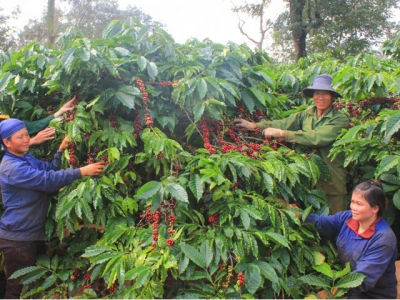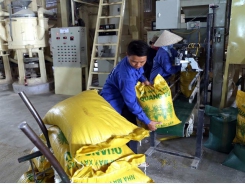PPP arrangements in agriculture need to be improved

Public-private partnerships (PPP) in agriculture are aimed at developing sustainable production chains. However, eight years after PPP was first introduced in this sector, a number of PPP projects remain poorly scaled and arranged.
The coffee industry has attracted many PPP partners
Coffee, tea and pepper
In 2010, Vietnam started introducing partnerships between the state and the private sector through commodity-based working groups in the Partnership for Sustainable Agriculture in Vietnam (PSAV).
So far, the PSAV has successfully implemented seven PPP working groups for coffee, tea, vegetables and fruits, aquatic products, pepper and spices, rice and agricultural chemicals, the officials said. The groups connect pilot enterprises with a number of pilot provinces to create policy and institutional breakthroughs, attract private investment and restructure the agricultural sector.
These commodity-based working groups have also piloted farming models and expanded the cultivation of new varieties and the application of environmentally friendly techniques.
The coffee industry, in particular, has attracted many companies including Nestlé Vietnam, GCP, IDH, Yara, Bayer, EDE, and ACOM. More than 80,000 farmer households with a total area of 97,000 hectares of coffee have joined PPP projects.
Le Thi Hoai Thuong, Head of Nestlé Vietnam’s external relations department said that in 2016, the coffee working group focused on deployment of sample models, and since 2017, the models have been transformed in accordance with chain connectivity to add value to Vietnamese coffee, aiming to make Vietnam an exemplary global Robusta coffee development center. From now to 2020, the coffee sector will focus on linking development projects to address the sector’s problems, professionalizing the process of sharing and transferring knowledge, and application of techniques in communications and connection, Thuong said.
Nguyen Thi Anh Hong, General Secretary of the Vietnam Tea Association said the tea working group has compiled documented guidelines for sustainable tea production for six production regions and trained 1,207 group leaders in order to transfer sustainable tea cultivation techniques to 22,817 farmer households. Twenty-nine Vietnamese enterprises have participated and implemented PPP models in the tea industry. A foreign-owned company - Unilever Vietnam - has committed to purchasing more than 33,800 tonnes of tea in Vietnam.
Local government involvement needed
PPP development in a number of agricultural sectors remains challenging. In pepper farming, for example, enterprises were still gathering produce from different sources for export, said Nguyen Quy Duong, Deputy Director of the Ministry of Agriculture and Rural Development’s Department of Plant Protection. More safe pepper cultivation areas need to be developed, he added. Therefore, apart from attracting foreign direct investment, the ministry is encouraging Vietnamese enterprises to increase investment and become leading investors in these fields, he said. However, local authorities need to connect Vietnamese enterprises with farmers, Duong added.
Vegetables and fruits have proven export potential. However, Le Van Duc, Deputy Director of the Ministry of Agriculture and Rural Development’s Department of Crop Production said only the potato and maize sectors have implemented PPP projects, but these are small-scaled. Duc suggested encouraging more involvement by domestic enterprises and high technology application to develop the vegetable and fruit industry.
Deputy Minister of Agriculture and Rural Development Le Quoc Doanh said establishing PPP-based models to attract domestic enterprises to production chains is important. PPP models need to be further improved for better efficiency, he added.
Có thể bạn quan tâm
Phần mềm

Phối trộn thức ăn chăn nuôi

Pha dung dịch thủy canh

Định mức cho tôm ăn

Phối trộn phân bón NPK

Xác định tỷ lệ tôm sống

Chuyển đổi đơn vị phân bón

Xác định công suất sục khí

Chuyển đổi đơn vị tôm

Tính diện tích nhà kính

Tính thể tích ao hồ




 Coffee prices continue to slide
Coffee prices continue to slide  Bình Phước farmers learn new techniques for cashew…
Bình Phước farmers learn new techniques for cashew…